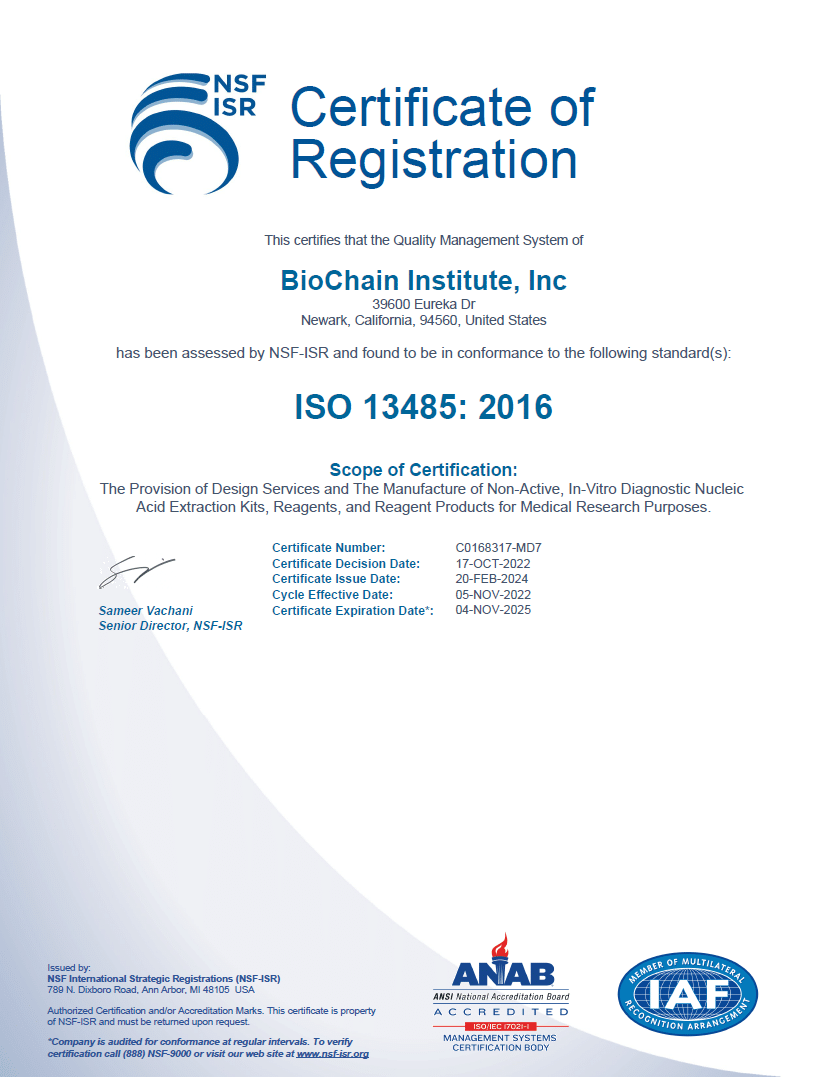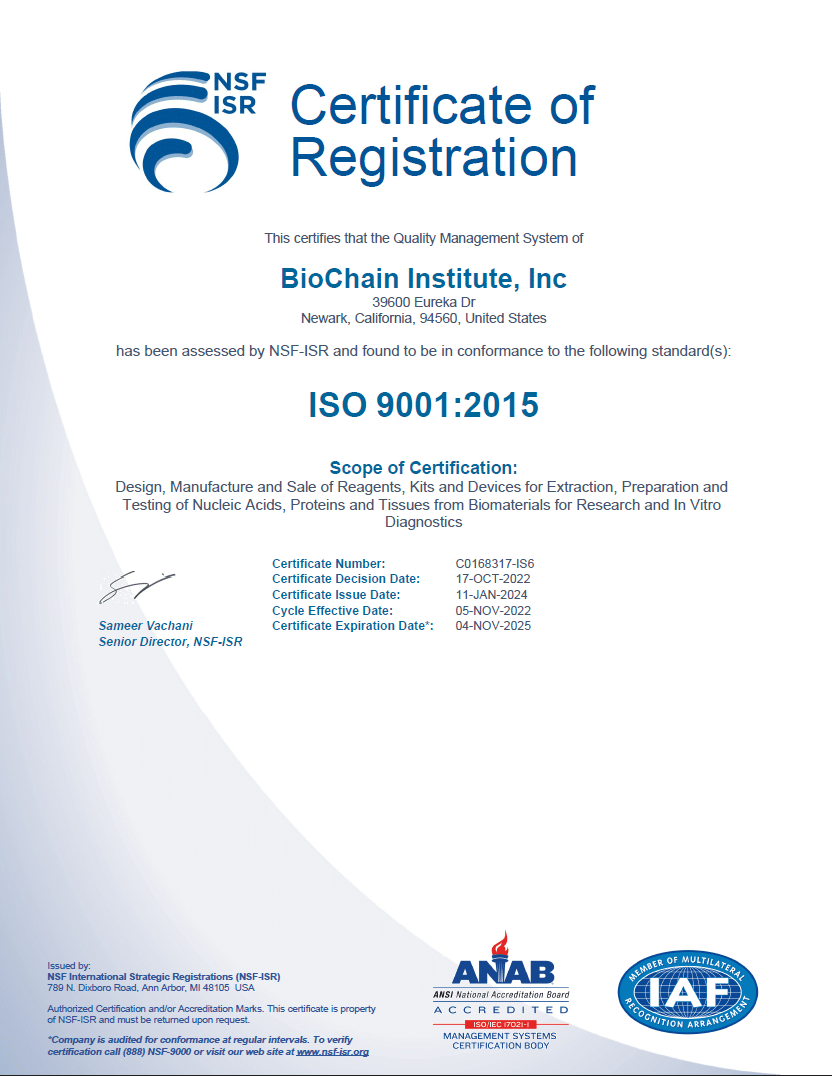- Need assistance?
- 1-888-762-2568
- Contact Us
Regulatory Compliance
Strict Adherence To Regulations
As a responsible player in the life science and healthcare product manufacturing and services industry, BioChain adheres to various regulations that govern our quality operations and processes. Our laboratory is compliant to the OSHA and BioSafety Level II standards. Our manufacturing facility is registered under the ISO 13485:2016 & ISO 9001:2015. Our sample collection and handling process conforms with the IRB process and informed patient consent forms being required for each sample. We are building the next level of compliance into our facilities and processes as we continue to move towards clinical diagnostic application development.
Human Research Protection
BioChain has established an Institutional Review Board (IRB) compliant to 45 CFR part 46, 21 CFR part 56.
The IRB is registered with the Office for Human Research Protections(OHRP) with the registration number of IRB00008283.
Import/Export Permits
BioChain has obtained the appropriate permits from the United States Department of Agriculture (USDA), the United States Fish and Wildlife Service (USFWS), the Convention on International Trade in Endangered Species of Wild Fauna and Flora (CITES), and the Centers for Disease Control and Prevention (CDC) for import and export of products to its customers.
BioChain has implemented the compliance procedures to legally import and export a variety of biomaterials from different species of organisms for research and development.
BioSafety Compliance
BioChain strictly adheres to all regulatory requirements when performing work involving bio-hazardous materials. All laboratory personnel are trained and proficient in Biosafety Level 2 practices. This includes regulations, guidelines and recommendations from DHHS, CDC, NIH, OSAH, and State authorities. Our high standards ensure the safety of our personnel and also prevent unwanted contamination of the final products.
Occupational Safety and Health Compliance
BioChain has established facility and operating procedures compliant with OSHA Regulations (Standards – 29 CFR) Occupational exposure to hazardous chemicals in laboratories. – subpart 1910.1450.
Quality Management System (ISO Certification)
Biochain is assessed annually by NSF-ISR to ensure compliance under ISO 13485:2016 & ISO 9001:2015 standard.
BioChain has also implemented and maintains a Quality Management System, which fulfills the requirements of the ISO 9001:2015.
International Organization for Standardization (ISO) is an international standard-setting body composed of representatives from various national standards organizations.
The organization promulgates worldwide proprietary, industrial and commercial standards.



